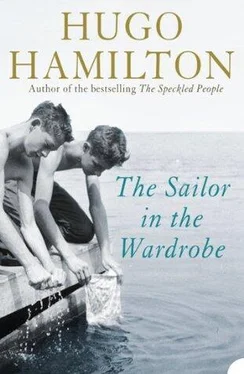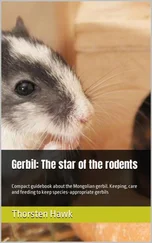Next day, there is a big inquiry. It’s like the time I robbed the instrument of torture at school. The manager with his trilby hat comes down to inspect the damage and then calls everybody into the canteen for a general meeting where he makes a speech in his English accent. He says he’s suspending all casual work until he finds out who sabotaged the hut. He doesn’t seem to be that angry, just disappointed. He says he cannot have this kind of destruction going on and he’s quite happy to fire everybody in the plant if he doesn’t find out who the culprit is. The people who did it must own up. Otherwise nobody will work again and everybody goes home.
The machines in the factory continue working and the foremen do all the essential jobs that we were doing before, as if they didn’t need us in the first place.
Then there is another meeting in the barracks, where the Ugandans say it’s for us to sort out. They’ll cut off all our Kabulas and stuff them into each others’ mouths if they lose their jobs. It’s an Anglo-Irish problem and they should be left out of it, everyone agrees. Everybody starts discussing what to do. But the drunken vandal who did all the damage wants to stay, along with his friends. He’s at university and he needs to work right to the end of the pea harvest so he can get enough money to keep himself through the year, like the Ugandan medical students. So the drunken lads who caused all the trouble have a great plan. They ask if anyone would like to volunteer, to become a paid scapegoat. They intend to make a collection which would pay for the repair of the hut as well as giving the scapegoat a huge bonus as well.
Everybody is talking about it all morning, but nobody really wants to go home. And then Packer asks me if I would like to volunteer with him. He mentions the money we would be getting and how we could be on the train later on that same evening. I tell him I like the work at Ross Foods and I would rather stay. I never want to go home again, because here I can just be myself, a fork-lift truck driver. But Packer says we can feck off down to London, and there’s a rock concert coming up in Reading. We could be listening to Pink Floyd instead of working with peas. All we have to do is act the criminals for a few minutes, look guilty and contrite, say we’re sorry and it will never happen again.
We are sitting in the manager’s office. He’s sitting behind his desk with his trilby hat resting on a stack of papers in front of him and a red ring around his forehead where the hat made an impression. First of all, he says he’s glad that we owned up to the crime. He lets us know how much we will have to pay to repair the damage, but none of that worries us because we’ll get all of that back with bonuses. He tells us that we will never be invited to work at Ross Foods again as long as we live, but that doesn’t worry us either, because there’s plenty of work to be found in England and I’m already thinking I’ll get a job in a bar, or on the buses, or better still in a cinema where I can get in to see the films for free.
I tell myself this will be over soon. It’s just a formality. Embarrassing as it is, the manager will soon have to give us our money and throw us out. But then he leans back in his chair, staring at us for a long time, fixing on Packer and then fixing on me as if he’s not quite finished with us. I can’t look him in the eyes because I feel guilty. He’s one of the nice people and I talked to him once when he came around inspecting the factory, asking me what I was going to do with my life and laughing when I said I didn’t know.
Now he’s staring into my eyes, like a magnifying glass burning a blade of grass in the sunlight.
‘I didn’t expect this from you,’ he says.
‘I’m sorry,’ is all I can say in reply.
‘But why?’ he asks. ‘Why did you do it?’
Packer tries to brazen it out, shrugging his shoulders. He’s more defiant and therefore actually looks like he damaged the hut intentionally. Maybe I’m still resisting guilt. The manager seems unwilling to let us go without getting some kind of an answer, something that will undo the offence of this vandalism, as if the money to repair the hut is not enough without some kind of an explanation.
I have to imagine that I was the person who carried out the crime. Unlike the trial in school around the instrument of torture, this time I have to pretend I’m guilty. I tell him that we were drunk in town and that we don’t know what came over us. But then he wants to know what pub we went to and what we drank. We don’t know the name of the pub and he asks so many questions in rapid succession that I am in danger of giving myself away.
It’s like an interrogation, only the other way around. It’s become tortuous, sitting there in his office pretending to be guilty, afraid that any minute he will find out that we’re innocent, afraid that I will blow it all and retract my own confession. It’s like a trial in reverse. Except that when you’re guilty you can put your hand up and own up to it. Go on, put me in prison. Execute me, whatever. If you’re guilty, you can come clean, acknowledge your crime and take the punishment.
‘Is it something you have against the British?’ he asks.
‘No,’ Packer and I both say at the same time. ‘No, it’s nothing like that, honestly.’
The manager is after the truth. He wants justice. He’s like a judge waiting to announce the sentence and I wonder about the whole idea of taking on guilt that doesn’t belong to me. I am reminded of how my mother was shamed in front of the world after the war and now I’m being shamed myself. I realize how strange this is, when a person is put on trial, how the judge declares that he will never commit this crime himself. It’s the judge who goes on trial. When the Nazis were put on trial at Nuremberg, the world gave an undertaking never to do the same again. When they executed Eichmann in Jerusalem, they gave an undertaking not to repeat his crimes. It’s not the criminal who is on trial now but the rest of the world. It’s the Nazis who have put us all on trial for eternity.
The manager stares at me like a psychologist, trying to work out what is inside my head.
‘Why?’ he asks one final time.
Then I can see Packer trying to think of a way out of this perpetual trial. He looks up at last and says it must have something to do with the peas.
‘Too many peas,’ he says.
And then I can’t keep myself from laughing. I try to cover my face with my hand, and I’m waiting for Packer to say that peas are a vile and ordinary vegetable and we never want to see another pea as long as we live. The manager looks up in complete astonishment. We have become truly guilty now, laughing in the face of justice, mocking our accusers like cold-blooded criminals without an ounce of remorse or shame.
‘It’s not funny,’ he says.
I realize that he’s still got our money. So I try to stop laughing long enough so we can finish all this and get out of the office with what’s left of our wages.
‘That’s really cheap,’ he says to us, almost spitting it like an insult into our faces. ‘You come in here and say you’ve smashed up the place and then laugh at it.’
At least he believes I’m guilty. And finally he opens the drawer to take out two envelopes. He’s lost his patience and begrudgingly hands over the money.
‘I can’t understand you people,’ he says, but we’re already on the way out, down the stairs and out into the free world, innocent at last.
It’s all over. We pack our bags and collect the money we’re owed from the other lads who smashed up the hut. We’re amazed at what we’ve come out with, and figure that we would have had to work for weeks to get this much. Some of the lads envy us and ask us what we’re going to do and where we are thinking of going. Packer tells them we’re off to the Reading rock festival. They call us ‘fucking Kabulas’ because they’re all jealous of our freedom. Packer tells them we’re going to hang around in London for a while and we might head off to Berlin. He’s heard of a ship that goes from Harwich to Hamburg every day. Germany is where the real money is, so it’s goodbye to the peas and goodbye to the men in trilby hats and goodbye to all the sad Kabulas left behind in Ross Foods.
Читать дальше
Конец ознакомительного отрывка
Купить книгу












